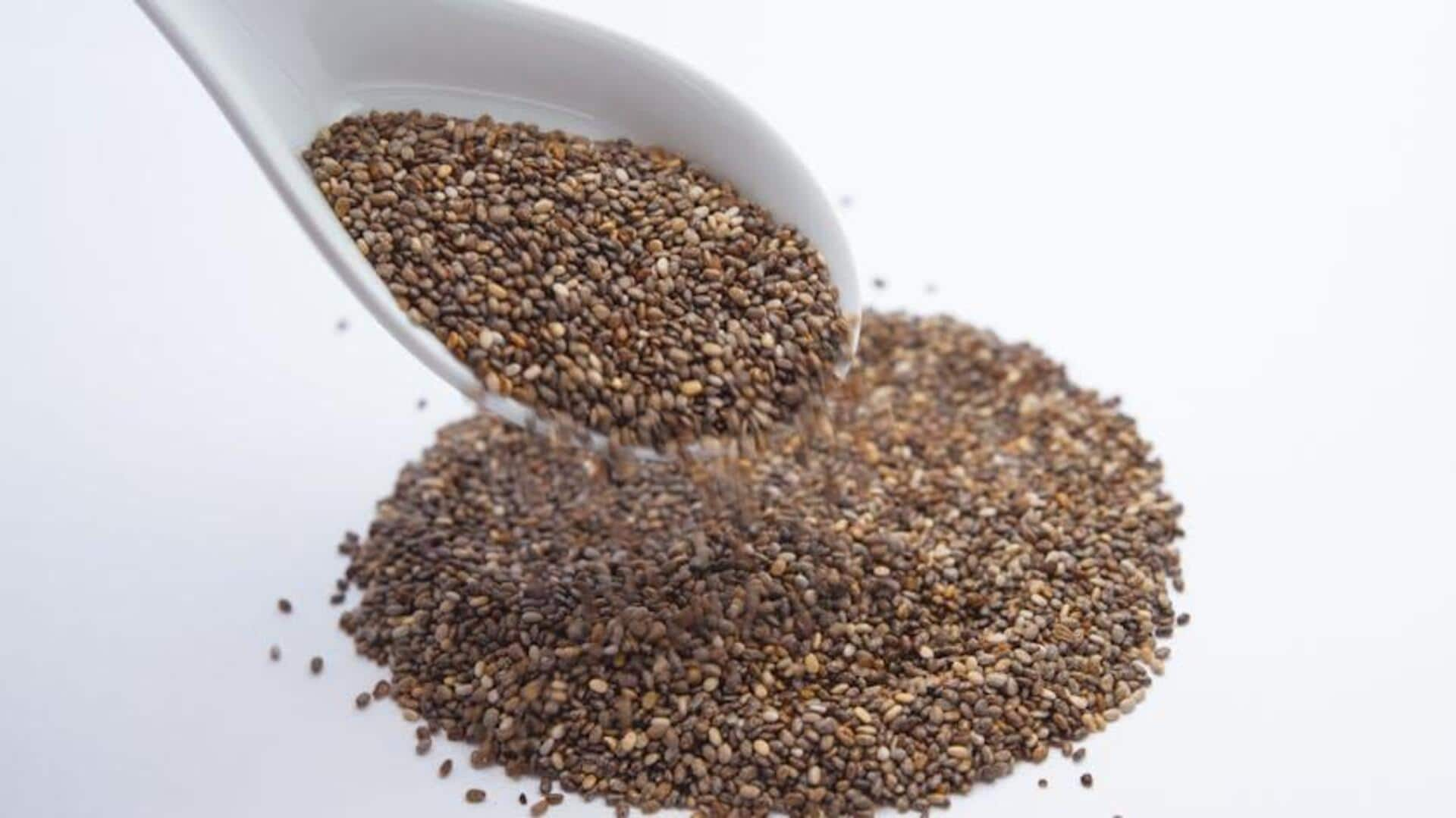
Sesame seeds v/s chia seeds: Which is healthier?
What's the story
Sesame seeds and chia seeds are two of the most popular superfoods. Both of these seeds are packed with essential nutrients, but they are not exactly the same. Knowing the difference can help you choose the right one according to your nutritional needs. Here, we delve into the nutritional profiles of sesame and chia seeds, comparing protein, fiber, healthy fats, vitamins and minerals, and antioxidants.
Protein power
Protein content in seeds
Sesame seeds pack some five grams of protein per ounce, making them an excellent source of plant-based protein. Chia seeds give you slightly more, about six grams per ounce. Protein is essential for muscle repair and growth, which is why both seeds can be an excellent addition to the diet of anyone looking to boost their protein intake through plant sources.
Fiber facts
Fiber levels in each seed
Chia seeds are especially fiber-rich, offering approximately 10 grams per ounce. This makes them an ideal option for boosting digestive health and keeping you satiated post-meals. Sesame seeds are comparatively lower in fiber (about four grams per ounce), but still add to your fiber intake for the day.
Fatty acids
Healthy fats comparison
Both sesame and chia seeds are loaded with healthy fats. Sesame seeds have about 14 grams of fat per ounce, with a good proportion being monounsaturated fats, which are good for heart health. Chia seeds have around nine grams of fat per ounce, with a greater proportion of omega-3 fatty acids, known for their anti-inflammatory properties.
Nutrient density
Vitamins and minerals abundance
Sesame seeds are loaded with calcium, iron, magnesium, phosphorus, zinc, copper, and manganese, etc., which promote bone health, among other functions in the body system. Meanwhile, chia offers calcium along with magnesium, manganese, phosphorus, and selenium, helping with overall well-being too, albeit not as concentrated as its sesame counterparts.
Antioxidant benefits
Antioxidant properties analysis
Both sesame and chia seeds provide antioxidants that combat oxidative stress in cells. Sesame seeds are particularly known for their lignans, such as sesamin and sesamolin, which provide unique health benefits. Chia seeds, on the other hand, are high in the flavonoids quercetin and kaempferol. These offer their own unique protective effects against cellular damage, highlighting the varied antioxidant profiles of these seeds.